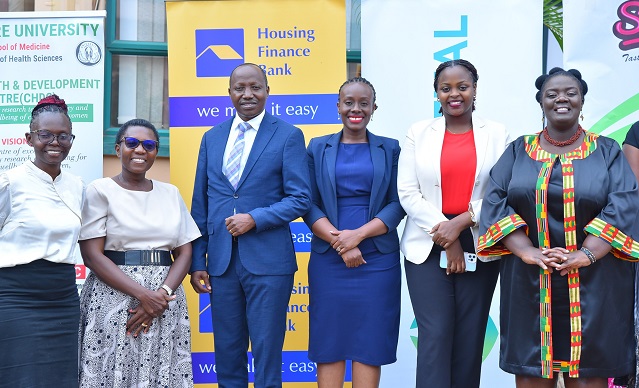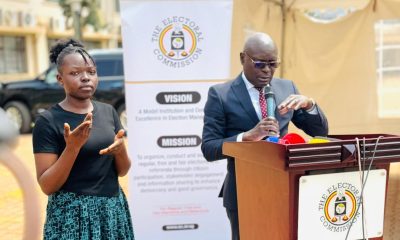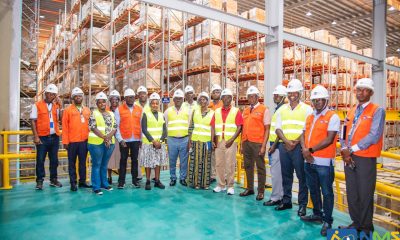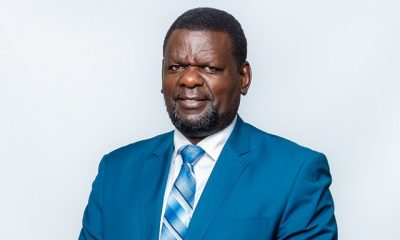Corporate
Home to Nation: Parenting Symposium Signals Shift in Development Strategy
As Uganda gears up for the National Parenting Symposium on July 31, 2025, a new development paradigm is emerging. It places the family, and particularly parents, at the heart of the national transformation.
The partnership between Mama Tendo Foundation and Housing Finance Bank, unveiled at The New Vision offices this week, is a bold recognition that the health of a nation begins in its households.
For decades, policy focus in Uganda has often leaned heavily on economic growth indicators, infrastructure development and institutional reform. Yet, the long-overlooked domain of parenting—a subject typically confined to private spaces—is now being brought into the public arena as a strategic national conversation.
Parenting Matters More Than Ever
At first glance, parenting might appear to be a personal, even intimate, responsibility. But emerging data and social trends suggest otherwise. According to research shared during the launch, children in Uganda reach only 56% of their full developmental potential, largely due to challenges in parenting approaches and limited access to guidance.
This statistic is more than a red flag—it is a development crisis. Poorly guided children become vulnerable to early pregnancy, school dropout, substance abuse and violence. These social issues, when left unaddressed, spiral into economic and public health costs, placing strain on already burdened systems.
The Symposium’s theme; “Parental Involvement, Sex Education and Children’s Wellbeing”, directly targets the most sensitive and often neglected conversations in many Ugandan homes. Sex education, in particular, remains taboo in many communities, despite its crucial role in reducing teenage pregnancies and sexually transmitted infections.
By encouraging structured, culturally sensitive dialogue around such topics, the Symposium aims to break long-standing silences and equip families with tools for resilience.
The involvement of Housing Finance Bank represents a growing shift in how the private sector in Uganda defines social responsibility. Beyond its traditional mandate in Housing and Finance, the Bank is now actively investing in social infrastructure; families, parents and values.
Its pledge to conduct financial literacy sessions during the Symposium demonstrates recognition that economic well-being begins with the family unit. Helping parents plan for children’s education, health and future empowers them to break cycles of poverty and dependence.
This aligns with a broader and global understanding of inclusive development: that no amount of economic growth is sustainable without strong families to support and sustain it. Uganda’s corporate sector may be waking up to the fact that Corporate Social Responsibility, or CSR, is no longer about charity; it is about nation-building.
Mama Tendo’s Growing Influence
Under the leadership of Ms. Catherine Ruhweza, Mama Tendo Foundation is positioning itself not just as a parenting organisation but as a national force for social change. With a reach of over 500,000 families in 15 years, the Foundation is demonstrating that parenting support, when delivered consistently and strategically, can be just as impactful as any infrastructure project.
The launch of five children’s books for different age groups is a smart, contextually grounded intervention that meets children and parents where they are—at the dinner table, in classrooms and in difficult moments of conversation.
What is notable is the organisation’s ability to attract both corporate and grassroots trust, bridging the often divided worlds of professional policy and lived experience.
In recent years, Uganda has made commendable investments in universal education, health infrastructure and digital inclusion. Yet gaps persist in addressing the “soft” dimensions of development: emotional intelligence, values formation, parents’ support and mental health.
This Symposium responds to a deeper question: Who is raising Uganda’s next generation—and how? If parents lack the information, support and confidence to nurture their children, then all other development gains risk being undermined.
Furthermore, the theme ties into regional conversations about youth bulges, unemployment and migration. By investing in the emotional and psychological well-being of children today, Uganda may be shielding itself from future instability.
The National Parenting Symposium may appear modest compared to large economic summits or infrastructure launches. Yet in its purpose and timing, it signals a transformational shift in how Uganda views nation-building. By recognising parenting as a shared national responsibility, this initiative calls on all stakeholders, the Government, the private sector, civil society, faith leaders and parents, to play an active role in shaping the moral and developmental trajectory of the country.
If successful, this could mark the beginning of a new development era. It will be one rooted, not just in roads and buildings, but in relationships, values and the power of an empowered mother and father.
Comments



























